#the culture industry
Text
“In former times they signed their letters, like Kant and Hume, "Your most obedient servant," while undermining the foundations of throne and altar. Today they call heads of government by their first names and are subject, in every artistic impulse, to the judgment of their illiterate principals.”
-Adorno & Horkheimer, The Culture Industry: Enlightenment as Mass Deception
32 notes
·
View notes
Text
They Turned Magic Into Funko Pops
My first point is that the people creating Magic: the Gathering have been fucking up super badly in recent years, my second point is that creative works are unavoidably constrained and guided by the material circumstances of their production, and my third point is that these things are related. That should be enough for you to decide whether or not this is going to be an interesting read for you. Let's go. <3
Magic: the Gathering arrived in August of 1993 with a clear creative identity. In December of 1993, Magic got its first expansion: Arabian Nights. Within the narrative, Arabian Nights takes place on the plane of Rabiah, but nobody then or now is taking the position that Rabiah is in any sense WOTC's original creation, due to that position being completely impossible to support. Arabian Nights is One Thousand and One Nights pared down and translated into ninety-two Magic cards. Magic's clear creative identity reached the venerable age of four months before WOTC compromised it.
I lead with this because I'm gonna be complaining a bunch about Magic's creative identity, and I need you to understand that I am talking about something substantial, that my argument is not They Changed It Therefore It Sucks. Even beyond the baseline of creative works being unavoidably in conversation with their predecessors, Magic's creative identity has always had complications, and you have to go pretty berserk to make the argument that Arabian Nights was bad for Magic, creatively or financially. You don't even have to go as far as Arabian Nights, either: you could ask pointed questions about the very first Magic cards to arrive in players' hands. What, precisely, does Crusade represent? What is a distinctly Miltonian angel doing in a world where Christianity could never have existed? How are we to interpret quotes from Poe, Tennyson, and Carroll when they're presented in the exact same way as quotes from in-universe sources? Are we being told that Samuel Taylor Coleridge is a resident of Dominaria, given that there's as much flavor text attributed to him as attributed to all in-universe authors combined?
No rigorous or direct answers were forthcoming to this kind of question, just practical ones, expressed not in prose but in cards, mechanics, and designs, and this was the right form for such answers to take. The authorial stance that emerged over the years goes like this: "Magic is a game with a narrative component. When players are playing the game, their game actions constitute a series of events that could possibly happen in the world that we created for this purpose. That world in turn exists both to improve the game for the players and to tell stories of people and events that exist strictly within the world rather than having an existence dictated by people playing the game."
Squint a little and Magic is postmodern to its roots: every game of Magic is also Magic fanfiction! It takes a few years for Magic to go from having a loosely-sketched world to having a discernible story as such, with all the false starts and winceworthy fumbles that you expect from people who are both inexperienced and doing something meaningfully new, but the core concept is strong enough that when the game's creators and stewards fuck up (often, and sometimes severely), they subsequently manage to fix up. Much of what makes narrative in games unique and exciting and compelling is that "audience" and "participant" overlap, and much of what made Magic successful is its particular way of allowing these things to overlap. Particularly, Magic both creates a larger possible overlap between those two roles and allows its player-readers more leeway to choose how much of the overlap they personally want to occupy, than any competitor did.
To use a technical term, a big part of what makes Magic different is its metaphysics. Metaphysics is the discipline that deals with issues on the fundamental-ness level of existence, causality, identity, change, and possibility. The creative world of Magic is unusual in two ways here: one is the actual content of its metaphysics, which is most clearly expressed by Magic's color system, while the other is that it has a far more coherent metaphysics than its peers. The color pie is very cool and interesting and useful for narrative purposes, especially once Magic's creators hit their stride and decisively reject simplistic interpretations of it, but I'm here to focus on the other way, because this is where we turn towards material circumstances of production.
Consider Magic as a very abstract creative work: it is a serial narrative produced over a long period of time by a mutable team of creators. This combination of factors doesn't strictly require any particular quality of the actual narrative being produced, but we can see this combination of factors across media and easily observe that it matters. This is the normal way for us to get new stories about Spider-Man, Batman, the Jedi and the Sith, Archie and the Riverdale gang, the Doctor, Pokémon, James Bond, Ethan Hunt, Gil Grissom, Goku, Dom Toretto, the Muppets, the G.I. Joes, the Transformers, Mario & Luigi, Final Fantasy, Mega Man, Asterix, the WWE, the voyages of the starship Enterprise, the Terminator, the Teenage Mutant Ninja Turtles, and the A-Team.
I'm going to call this the "team sport" model of making creative work. Sometimes it's deliberately constructed, but often it's the path of least resistance: you have a successful work and you want to keep making more of it, you recruit a team because that makes it easier to keep making more, having a team makes it easier to keep the work going after the original creator bows out (from death, disinterest, or something else), and serial narrative makes it easier to keep the work coherent when you have a team. It is also the model that certain kinds of work demand, usually because of scale, requirements for specialist labor, or labor discipline. In turn this model demands that you have a proper storytelling engine rather than a single story to tell: a single story is finite, while a storytelling engine is a method for making new stories in the same creative world, and once you're using this model of creative work that's what you're doing.
Once you lay all that out, this model is a natural fit for Magic. Cards are the building blocks of Magic, and designing hundreds of Magic cards is very difficult, but designing a single card is very easy. You can — and Magic's creators swiftly did — simply go recruit a bunch of people more or less at random, have them make you some cards, then have the people who made good cards make more cards. To go from making cards to making sets, you have people, possibly the same people, taking the pure game mechanics of a card and integrating those mechanics into the creative world. Sets, cards, and games combine into the full creative work of Magic.
Making Magic is arguably even more of a team sport than the other examples I gave: not only is there the "every game is also fanfic" dynamic, there's deckbuilding: Magic's creators provide cards that are grouped into sets, but the game is played with decks, not with sets, and what Magic's creators provide there are universally understood to be starting points or intermediate measures or suggestions, not proper decks. The overwhelming majority of all Magic games ever played have been played with decks that were constructed by Magic players, not by Magic's creators. The combination of the narrative structure of Magic and its game structure means that players are closer to participating in the authorship of the game, to being part of the team in the team sport model of creative work, than basically anything else.
There has been plenty of good work made with the team sport model. This is not a bad model for making creative work! Batman and Spider-Man became far more complex, nuanced, interesting, rewarding characters over the years specifically because the conversation among the creators making stories about them collectively produced characters who were much more than the raw sum of every story they appeared in. But like any way of building creative work, the team sport model has inherent trade-offs. Certain types of stories will not be told this way.
A major factor is that the team sport model is unavoidably commercial. A team of creators is not cheap, and the bigger the team is, the more likely it is to include esoteric specialized labor of various kinds, and in turn the expense of employing all those people is multiplied by time, and the longer you've been making a work for, the more you need some expedient for keeping the work legible both to new audiences and to existing ones, which again means a bigger and more expensive team. So you need some way for this creative work to make money to pay for its own creation, which in practice means that the team sport model of creative work is very young, is something that almost can't exist before the age of mass media. Therefore the work must have mass appeal of some kind.
Just from hearing that description, I expect you can already imagine ways that the team sport model can produce incredibly bad work, like The Emoji Movie. A few minutes into CCK Philosophy's explanation of the full crushing wretchedness of The Emoji Movie, there is this helpful guidepost:
[Adorno] not only respectfully engaged with the history and classics of Western art, he was concerned precisely with its destruction by the mechanisms of capital. He was concerned with what happens when the profit motive completely overtakes the cultural life of society, culminating in what he and Horkheimer called "the culture industry." The culture industry is what happens when, in a society of developed capitalism, cultural artifacts started becoming produced according to a standardizing plan — carefully planned to be as profitable as possible, like a mass-producing factory.
This guidepost, tragically, points directly to the problem with Magic.
Let's step back, though. I just talked about the team sport model of creative work. Is there no alternative? Sure there is. You might be a solo creator, working in a way where you simply have no need for a team of co-creators. You might be telling a deeply personal story, shaped not by commercial concerns but by what you personally happen to care about, and maybe not even by what you want to evangelize, but by what speaks to your heart. You might consider your country and its history emotionally important, such that you have spent a long time studying its literature and myth, and take very seriously the scholarship of these things. You might be a philologist as well as a historian, someone who looks directly at language itself as well as its relationship to history and thought. You might have one or more painful, dangerous life experiences whose influences show up in your work, refusing simple interpretations and coloring the whole with a melancholy and sensitivity that is blessedly oblivious to questions like "is this marketable."
You might, to say it directly, be John Ronald Reuel Tolkien.
The Lord of the Rings is a work that the team sport model of creative work cannot produce. It is deeply personal and idiosyncratic, it is a single person's extremely fully realized creative vision, it had a creation process measured in decades, and it is thornily resistant to attempts to transform it from a story to an engine of stories (indeed even the words of our metaphor here suggest something Tolkien wouldn't like). The artisan-creator model of creative work is, like the team sport model, a cluster of material circumstances of the production of a creative work, and in pure principle you can make any kind of work with either of them (or with various other models which I'm not talking about), just like you can in principle do any tractable computation with anything equivalent to a Turing machine. But these models are meaningfully different and the works produced by each model working at its best show the difference clearly. You already know the greatest-hits list here because the best works of this kind are canonized as The Great Works Of Human Culture. It's just that nobody has acted on the horrid vandalistic urge that would suggest making a Magic set out of Guernica, the David, the Taj Mahal, or The Gateless Gate.
Let's step back again.
Magic: the Gathering arrived in August of 1993 with a clear creative identity. In October of 2020, Magic got its 27th Secret Lair drop: The Walking Dead. Within the narrative, The Walking Dead takes place on a version of Earth with zombie problems, but nobody then or now is taking the position that this narrative is in any sense WOTC's original creation, due to that position being completely impossible to support. The Walking Dead is The Walking Dead pared down and translated into five Magic cards. Magic's clear creative identity reached the venerable age of 27 years before WOTC compromised it. It's just that this time, "compromising it" meant "deciding that it was okay to exterminate it."
Compromise is inherent to the team sport model of creative work. Mostly this is fine. If you work with other creators and you never compromise with them, your work will be worse for it. If you encounter unexpected circumstances while making your work, and you will encounter such circumstances when you're working with other people over an extended time, that too will probably require compromise from you. Your job as a creator — as a team of creators, since that's what we're talking about — is to make judicious compromises. The highest priority, of course, is to get the work out the door at all, since if you don't do that, the word for what you have done is not "compromise" but rather "failure."
More than The Emoji Movie, more than the utter contempt expressed by the 2015 Royal Rumble, for me the key to understanding failures of the team sport model of creative work is Funko Pops. Funko Pops are more or less an experiment in boiling away all possible meaning, human connection, and culture from a creative work, leaving only a thin greasy, ashen film of commercial exploitation at the bottom of the pot. They are a minimum possible unit of commercial culture, all actual creative work evaporated, leaving only the faintest outline of something pointing to the work, and demanding your money for it. Funko Pops are utterly meaningless, existing to be adapted to whatever is currently making money, to cut off that work's face, wear it for as long as it takes to collect a few dollars, and then to discard it, never having been burdened by any significance whatsoever.
They're bad.
If you do your job well, your audience will slide right past the compromise, or if you do it excellently, will perceive the compromise as an improvement. A great example of the latter: one of the best-established rules in Doctor Who is that the Doctor can recover from death via regeneration, but can only do this twelve times ever. This rule of the fiction mirrored a practical necessity of the material circumstances of its production: the actor playing the Doctor changed with every regeneration. In the process of getting the show from 1963 to 2013, the development of the story led to all twelve regenerations being used, which wasn't a problem because the creators briskly wrote themselves a reason to have twelve further regenerations and moved on. There were no remotely serious objections to this because the creators were not asking viewers to believe, "this plot twist follows the established rules of the fiction with maximum rigor," but instead asking them to believe, "this plot twist will lead to you getting more Doctor Who," which was a highly credible promise and a swiftly kept promise.
If you do your job poorly enough, the work becomes more compromise than substance. It becomes a Funko Pop: shrunken down to the point where the vendor (mere creators have been shoved out of decisionmaking by now) is assured that it is not capable of any offense that would compromise its sales, because it is not capable of anything more than existing at all. It inhabits a netherworld of generic culture product slurry.
It isn't fair to judge everything that makes a compromise as though it's The Emoji Movie, but of course, not all compromises are alike. I personally dislike Magic's creators compromising by incorporating The Walking Dead, the Warhammer 40,000 franchise, the Transformers franchise, and the Street Fighter franchise, but all of those have something important in common with Magic: the team sport model of creative work. A team sport creative work must have a fundamental flexibility to it in order to keep existing, even to well-established rules of its fiction, such as the Doctor Who example.
Magic used to have a very serviceable mechanism for such flexibility: silver-bordered cards. Most Magic cards have black borders and a few are white-bordered. Silver-bordered cards, introduced in Magic's joke sets, clearly said "the normal rules have been suspended here" to its audience. This is a very useful mechanism for a creator to have at their disposal, and it was used at a small scale almost continuously for a decade. The most visible-to-players examples of its usage were the joke sets and the My Little Pony cards. These were good compromises: they clearly communicated to the audience what would and would not be treated as durable elements of the work in the future. This is particularly important for Magic because, to repeat, part of what makes Magic unique is the way it makes the players collectively part of the team in the team sport model of creative work.
A bad compromise, by contrast, would treat decades-long practices as unimportant. A really bad compromise would muddle communications with players and then tell the players that it was their fault. A disastrously bad compromise would undermine the metaphysics of Magic's creative world, which, to repeat, is one of the things that makes Magic unique.
A disastrously bad compromise would be, to say it directly, printing a Magic set based on The Lord of the Rings.
This is where the material factors and the metaphysics come together, the way two speeding locomotives come together in a trainwreck. Magic, as a team sport model creative work, has an inherent flexibility. It had a mechanism for increasing that flexibility temporarily, and they stopped using that mechanism specifically with the printing of The Walking Dead in 2017, which is exactly when having more flexibility would be most useful. They then proceeded to print other ill-advised things, like the Warhammer 40,000 set, that were still based on other creative works produced by the team sport model, and thus could be flexed and stretched and twisted to fit together if you weren't too picky about the seams and rough spots and gaps.
I mentioned that it's interesting that Magic has a much more coherent metaphysics than its peers. It's interesting because team sport model creative works usually can't afford to have coherent metaphysics. Because these works have to have story engines rather than individual stories as their base, they have to have very flexible rules in order to keep generating stories. The success of Doctor Who in breaking its own rules about regenerations is them reaping the rewards of cultivating both flexible rules and the trust of their audience. They got to break a core premise of the fiction and have their audience's hearty approval to do it. That's uncommon! More usual is for questions like "how does causality really work in this world?" or "what is the nature of life?" to be unanswered or have incoherent answers, and in either case always ending with "… but we might change that for commercial purposes."
Magic started breaking its own rules by printing The Walking Dead — They knew that it was a bad idea, too! It's remarkable to see Mark Rosewater so exactly playing out the tragically evergreen "It is difficult to get a man to understand something when his salary depends upon his not understanding it" bit! — but Magic's creators have made and recovered from mistakes of that magnitude before. Instead of trying to recover, though, they went on to make a worse mistake.
One of the defining features of The Lord of the Rings is that it has an extensively developed metaphysics of its own, a metaphysics that is as unlike Magic's as the color #120A8F is unlike a fresh cedar plank. Part of what makes Magic special is that it has stable answers to some fundamental questions about how its universe works, but this is the exact scenario where that's a major drawback: Tolkien also has answers about how Arda works, and those answers are not remotely compatible!
Mordor is not a Swamp.
Eru Ilúvatar is not a Creature — God.
Gandalf did not defeat Durin's Bane by spending one white mana.
To portray these things is to do grotesque violence to both creative works.
I expect that Tolkien fans already in their hearts understand why this matters. Magic fans, I now speak to you. The reason that this matters is those material circumstances of production that I have been talking about. No matter what nice things Mark Rosewater says, these material actions are telling you that WOTC is determined to turn Magic into Funko Pops, to scoop out everything that makes Magic have a creative identity and replace it with generic culture product slurry. Printing a set and a half based on The Lord Of The Rings is not where it started, it's just a very clear line being crossed after a few years of frog-boiling, a few years of pushing harder and harder to find out how far they could dilute Magic, how much one could stop doing the actual difficult work of an ongoing creative project, start replacing that work with purchases of licensing rights to something else, paste that something else onto Magic cards with pushed power level, and demand money for them.
Magic's creators have trashed their mechanisms for making their creative world flexible and profoundly abused the trust of their audience, in both cases throwing away things that make Magic unique, its metaphysics and the way its version of the team sport model of creative work includes the audience, in pursuit of making Magic into a generic, pathetic little bobblehead of a game, a mere appendage to the Hasbro Family of Intellectual Property, here to support the next Brand Extension or Franchise Opportunity or whatever devilry for extracting money is next presented by some MBA with a mind of metal and wheels.
5 notes
·
View notes
Text
Music and radio need no longer pretend to be art. The truth that they are just business is made into an ideology in order to justify the rubbish they deliberately produce. They call themselves industries; and when their directors’ incomes are published, any doubt about the social utility of the finished products is removed.
Max Horkheimer and Theodor Adorno in "The Culture Industry: Enlightenment as Mass Deception" from Dialectic of Enlightenment (1947)
5 notes
·
View notes
Text
I do sort of wish western anime fans would analyze anime and manga from a framework of japanese historical and cultural context. Specifically a lot of works from the 90s being influenced by the general aimlessness and ennui that a lot of people were experiencing due to the burst in the bubble economy and the national trauma caused by the sarin terrorist attack. I think in interacting with media that’s not local to our sociocultural/sociopolitical sphere it’s easy to forget that it’s influenced and shaped by the same kinds of factors that influence media within our own cultural dome and there ends up being this baseline misalignment of perception between the causative elements of a narrative and viewer interpretation of those elements. It’s a form of death of the author that i think, in some measure, hinders our ability to fully understand/come to terms with creator intent and the full scope of a work’s merits
#exilley's diary#this is about utena btw like. yeah its feminist and a coming of age horror story but also#it was in part ikuhara’s response to the changes he observed in the corporate anime industry and an attempt to subvert those trends#it doesnt really help that i feel certain aspects of the show are filtered through translation and certain cultural emphasises are lost#like for instance. the blood type symbolism. or wakaba’s gestures with making packed lunches#theyre incredibly japanese expressions of conventional gender roles that non-japanese audiences might not fully resonate with
12K notes
·
View notes
Text
we need to destroy the idea that girls should wear makeup. normalize bare faces on prom queens and flower girls and cheerleaders. no products at all instead of '7 product simple makeup routine.' no more 10 step skincare and regular facials and dermablading and gua sha just to be comfortable with yr natural face. i want to see eye bags on the funny librarian and acne on the swim coach and wrinkles on all our adult role models. i want to see a 16 year old girl that has never tried putting on eyeshadow. i want to see a 7 year old girl who doesn't have to go out and buy powder for her dance recital. i want to see trans women and girls everywhere to never have to wear makeup, regardless of how well they 'pass.' no more 'contouring to look masc' either. a post-beauty industry world is possible
reblogs are on but if you bring up the stage makeup point that i have addressed three times yr blocked on sight ☹️
#this is me warding myself against the b arbie m ovie shitstorm. </3#too many teenage girls have had 'bimbo feminist' thrust upon them by the attention economy + consumer-feminist culture#its ok to just be fucking lame. like you can still be fem/me and stuff while doing it#there is a world where you can feel comfortable in yrself even if you arent Aesthetic#the makeup industry is trying to hinder this tho#plus i saw that post thats like. 'the reason we see a lot of casual pseudo-gender-essentialist and choice feminism rhetoric...#... is because we have fewer posts now that have basic feminist messages'#that resonated so i am the change i want to see in the world#i wanna try and make a r iot g rrrl masterpost for anyone getting into that side of things later so lmk if you want to see it
20K notes
·
View notes
Text
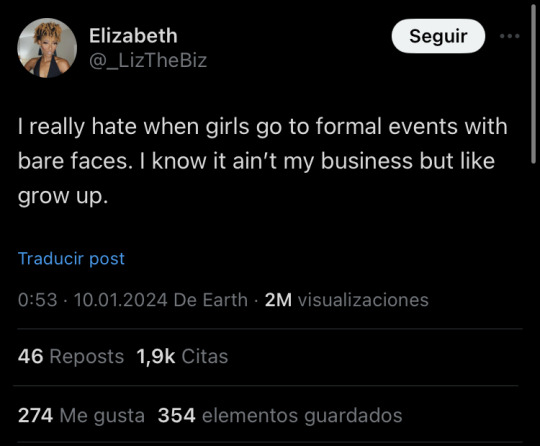
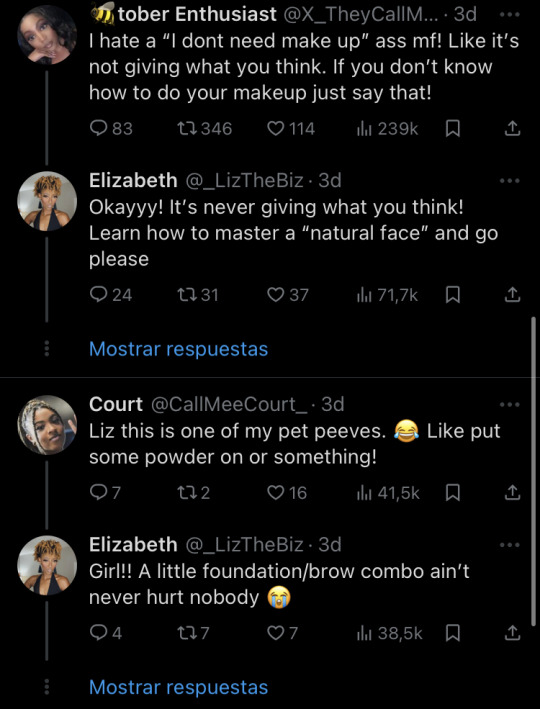
wow i love twitter sm.
on a serious note - i think it's funny to portray women not wearing make-up as silly and childish when you're the one apparently caring so much about what other people are doing to their faces.
ask yourself: why do you find bare faces not appropriate for formal events? why does it bother you to see a woman without makeup? how does it effect you? why do you think it effects you?
you're so insistent that there are no societal pressures at play, that women are doing this exclusively for themselves and for the joy of it - then where does this urge to force it on women who don't find joy in it come from? why does it annoy you to see women in their natural way of being? it's a choice, but also there's a right choice, apparently, and anyone stepping out of line shoud be promptly shamed into submission. right?
"a little (whatever) never hurt anybody" okay and neither does a bare face. grow up.
#mona mona mona#anti beauty culture#anti beauty industry#anti makeup#feminism#radfem#every week i see some variation of “every woman should know how to do (specific kind of makeup)” or “i can't take grown women who don't do#seriously" or straight-up shaming women for the crime of having a face and not painting it over to start over#also this attitude that “it's only little x” you say that about everything!!!!!!!!!!! a little of this here and a little of this there and#bit of this and that. that's a full face babe!#also i literally don't care! i don't give a shit about how litte whatever i don't want to do a little of anything. at all.
2K notes
·
View notes
Text

Andrea Dworkin's classic Beauty Hurts diagram from Woman Hating (1974), updated for modern procedures, fifty years later.
A first step in the process of liberation (women from their oppression, men from the unfreedom of their fetishism) is the radical redefining of the relationship between women and their bodies. The body must be freed, liberated, quite literally: from paint and girdles and all varieties of crap. Women must stop mutilating their bodies and start living in them. Perhaps the notion of beauty which will then organically emerge will be truly democratic and demonstrate a respect for human life in its infinite, and most honorable, variety.
—Andrea Dworkin, Woman Hating (1974)
#feminism#radical feminism#anti beauty culture#anti beauty industry#anti beauty standards#anti makeup#andrea dworkin#dworkin#beauty culture#women#woman hating#woman
2K notes
·
View notes
Text
Watch this video. Listen to what she's saying. She's explaining the dangers of strangulation and her own experience with domestic violence. What would you assume the comments are like? Sympathetic? Are people interested in spreading awareness?
No. The comments look like this
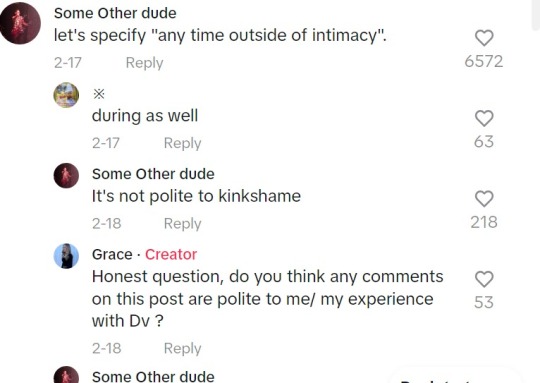


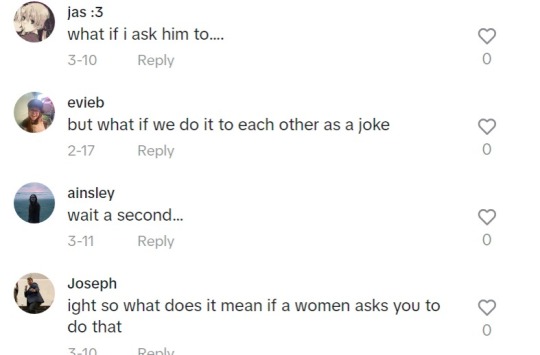

This is why I fucking despise kink culture. Y'all are willing to make jokes like this to a woman who survived domestic violence. Y'all are willing to invalidate her message to validate your kink.
Yes, strangulation is still dangerous during sex and it doesn't stop being dangerous because sex is involved.
Yes, women are injured by rough sex all the time.
Yes, it's still abuse even if it happens during sex.
#radfem#radblr#radical feminism#radfems please interact#if kink culture has no haters i'm dead#radfems#anti sex industry#radical feminst#radical feminist safe#radical feminist#radfeminism#baby radfem
971 notes
·
View notes
Text
incase anyone missed it: pamela anderson went to pfw without makeup!!!
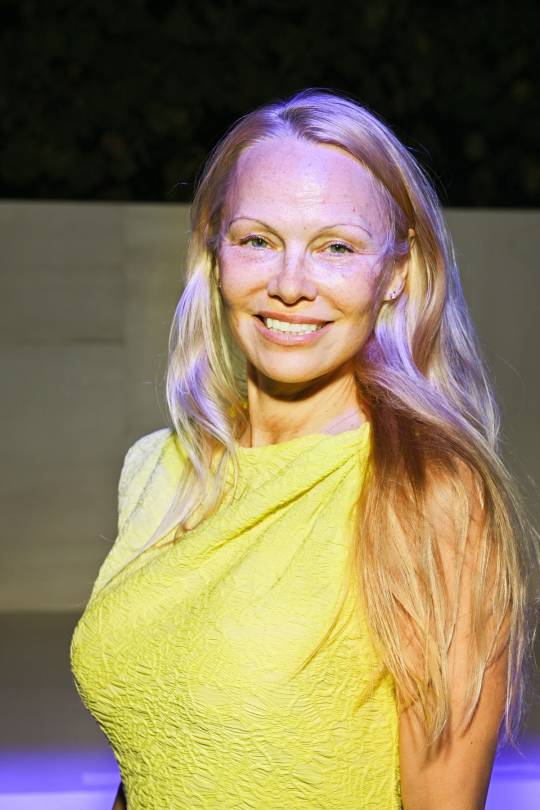
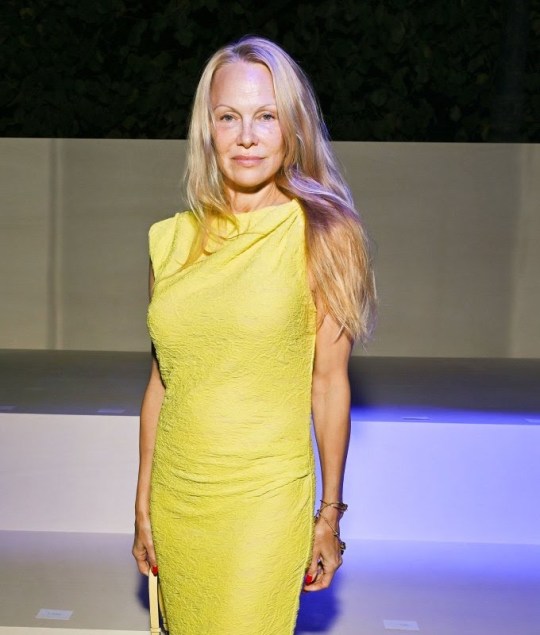
"I'm not trying to be the prettiest girl in the room. I feel like its just freedom. Its like a relief."
i love seeing this. such a win !
#radfem#radical feminist safe#sex based oppression#radical feminism#radblr#anti beauty industry#anti makeup#anti make up#anti beauty standards#anti beauty culture#pamela anderson#paris fashion week#pfw23#pfw 2023#not j a reblog tag
2K notes
·
View notes
Text



nature is healing
#radfem#anti beauty culture#anti beauty industry#radical feminism#radblr#radical feminists please touch#radical feminists do interact#radfem safe#gender critical#gc feminism#feminism#anti beauty standards#anti anti aging#pro aging
603 notes
·
View notes
Text
“The rare ability to conform punctiliously to the obligations of the idiom of naturalness in all branches of the culture industry becomes the measure of expertise. As in logical positivism, what: is said and how it is said must be verifiable against everyday speech.”
-Adorno & Horkheimer, The Culture Industry: Enlightenment as Mass Deception
5 notes
·
View notes
Text
wow almost seems like this whole romanticization of "girlhood" thing kind of revolves entirely around consumerisim. "little treats". 10 step skincare regimens. "girl math" as an excuse to be financially illiterate. be a good girl, don't think, just spend inordinate amts of money to conform to the latest tiktok microtrend bc that's all it means to be a girl <3
#cultural critique#cultural criticism#romanticization#girlblogging#gaslight gatekeep girlboss#girl math#little treat#tiktok trend#feminism#anti beauty industry#anti beauty culture
2K notes
·
View notes
Text
Cosmetic surgery is NOT the same as reconstructive surgery ffs. Someone getting a nose job so they look "better" is not the same as someone trying to restore their nose after an accident and you all know it.
"Oooh you can't criticise plastic surgery, some people NEED it" ok well I can and I will, just like I'll criticise the diet industry even tho sure there are people who might need to lose weight out there.
Let's be real here, it's very telling that feminists will be like "hey so X exploits women" and suddenly a bunch of you will be like "whoa there, have you considered not talking about that?"
It's worse when those of you claiming to be all anti capitalist do this tho. Oh you think capitalism is bad, but also we shouldn't critique the rise of dangerous and unnecessary cosmetic surgeries? Go fuck yourself
#anti beauty industry#anti beauty culture#anti plastic surgery#radfems interact#radfems please touch#radical feminism#vagueposting#vague post
1K notes
·
View notes
Text





i‘m almost 27 and still struggling with body dysmorphia but this new generation is on a whole new (worse) level holy fuck. also notice how the feminine ones all wear makeup and the others dont?
2K notes
·
View notes
Text
@ ALL CRASHQUEENS AND KILLJOYS!
i've been in this fandom since 2016, so i've seen headcanons and zone culture and terminology of all kinds.
with that said , i'd like to present the official (unofficial) danger days dictionary. includes everything from zone culture, slang, battery city locations, phoenix witch, even down to bad luck beads and the dust bowl.
for the nitpickers out there, the comics are mainly discarded in this— due to how overwhelming it would be to throw in even MORE overlapping terms and such. some comic characters have been slipped into the regular timeline / universe, just for funsies and a honorary mention. don't come at me, thanks!
REBLOGS RECOMMENDED.
#danger days the true lives of the fabulous killjoys#danger days#zone culture#zone words#party poison#fun ghoul#kobra kid#jet star#mcr#my chemical romance#zone dictionary#phoenix witch#words from the zones#battery city#better living industries#korse#dr death defying#fabulous killjoys#the true lives of the fabulous killjoys#kjrp#danger days headcanons#danger days dictionary#ttlotfk
598 notes
·
View notes
Text
Plastic surgeons should be stoned in public
#radblr#radical feminism#terfsafe#radical feminists do interact#radical feminists do touch#trans exclusionary radical feminist#radical feminist safe#terfblr#anti plastic surgery#anti beauty culture#anti beauty#anti beauty industry#anti beauty standards#female seperatism#women are the superior sex
256 notes
·
View notes